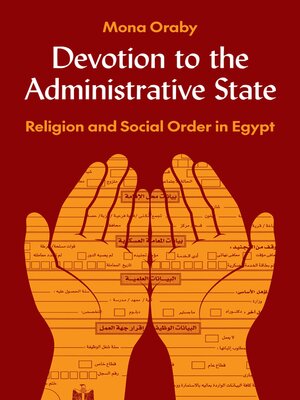
Sign up to save your library
With an OverDrive account, you can save your favorite libraries for at-a-glance information about availability. Find out more about OverDrive accounts.
Find this title in Libby, the library reading app by OverDrive.



Search for a digital library with this title
Title found at these libraries:
| Loading... |
Why the pursuit of state recognition by seemingly marginal religious groups in Egypt and elsewhere is a devotional practice
Over the past decade alone, religious communities around the world have demanded state recognition, exemption, accommodation, or protection. They make these appeals both in states with a declared religious identity and in states officially neutral toward religion. In this book, Mona Oraby argues that the pursuit of official recognition by religious minorities amounts to a devotional practice. Countering the prevailing views on secularism, Oraby contends that demands by seemingly marginal groups to have their religious differences recognized by the state in fact assure communal integrity and coherence over time. Making her case, she analyzes more than fifty years of administrative judicial trends, theological discourse, and minority claims-making practices, focusing on the activities of Coptic Orthodox Christians and Baháʼí in modern and contemporary Egypt.
Oraby documents the ways that devotion is expressed across a range of sites and sources, including in lawyers' offices, administrative judicial verdicts, televised media and film, and invitation-only study sessions. She shows how Egypt's religious minorities navigated the political and legal upheavals of the 2011 uprising and now persevere amid authoritarian repression. In a Muslim-majority state, they assert their status as Islam's others, finding belonging by affirming their difference; and difference, Oraby argues, is the necessary foundation for collective life. Considering these activities in light of the global history of civil administration and adjudication, Oraby shows that the lengths to which these marginalized groups go to secure their status can help us to reimagine the relationship between law and religion.






